Hannover Medical School (MHH) was officially opened under the Vice-Chancellorship of Rudolf Schoen on 17 May 1965. Back in 1961, Schoen had already chaired the founding committee set up to pave the way for a medical college in Hannover. After having been awarded emeritus status by the Chair of Internal Medicine at the University of Göttingen, he was appointed MHH’s founding Vice-Chancellor.
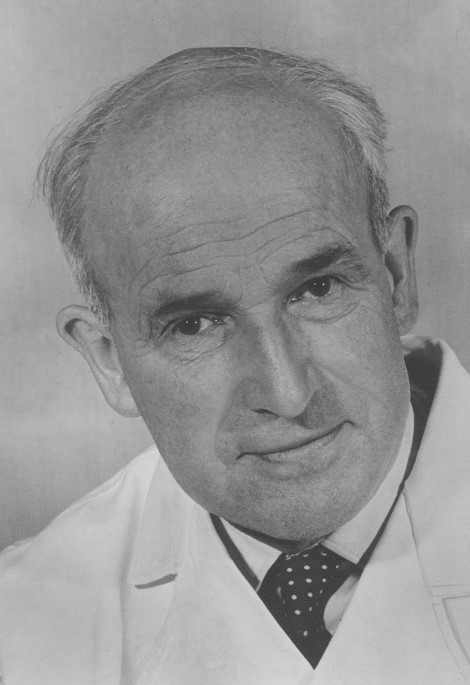
Born in Kaiserslautern in 1882, Rudolf Schoen studied medicine in Strasburg and Munich. His academic path took him (via Königsberg and Würzburg) to Leipzig before he assumed the Chair of Internal Medicine in Göttingen, succeeding Hermann Straub, in 1939. His main research interests included the pathophysiology of breathing, and rheumatology (of which, according to Fritz Hartmann, he was among the “pioneers”). Many of his conceptual ideas for a reforming university in the medical field were developed jointly with Hartmann. On the strength of his extraordinary service rendered to MHH, he was awarded an honorary doctorate on 17 May 1968. Professor Rudolf Schoen died in Göttingen on 11 March 1979.
In a decree of 6 March 1967, Fritz Hartmann was elected MHH’s first full Vice-Chancellor.
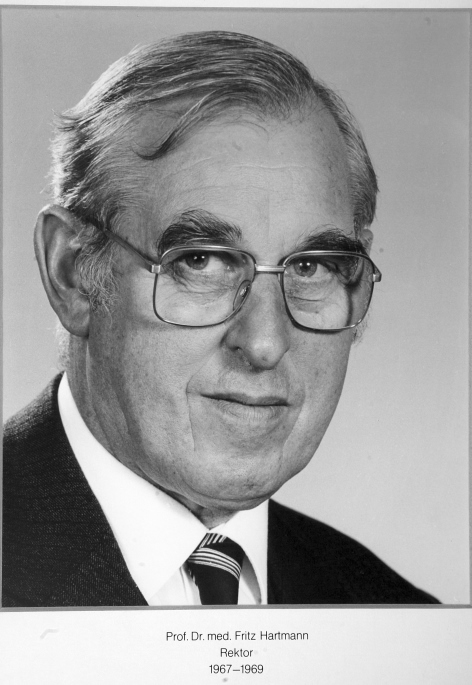
Born in Oberhausen, North-Rhine-Westphalia in 1920, he began his medical degree while the Second World War was still underway. However, his studies were interrupted when he received his call-up orders. After his undergraduate degree he gained his doctorate under Rudolf Schoen at the University of Göttingen where, in 1950, he also obtained his Habilitation postdoctoral lecturing qualification. 1956 saw him appointed to the Chair of Internal Medicine at Marburg University. Then, in 1961, he became a member of the founding committee set up to pave the way for a medical college in Hannover, with Hartmann accepting an offer to hold a Chair in Internal Medicine at the recently established MHH.
The main focus of his research and clinical work was on rheumatology. In patient care, he developed exemplary healthcare provision for these patients in Lower Saxony, made possible by the establishment of a network of excellence. That he conceived MHH as a modern centre for medical research and education proved of lasting significance for this higher-education institution, as did his unstinting efforts to make this become reality even after he gained emeritus status in 1988.
Alongside his clinical, research and teaching work at “his reforming university”, he remained committed to exploring the historical and philosophical foundations of medicine. Professor Fritz Hartmann died in Hannover on 10 February 2007.
In a decree dated 2 April 1968, Hans-Stephan Stender, Full Professor of Clinical Radiology, was appointed Vice-Chancellor.
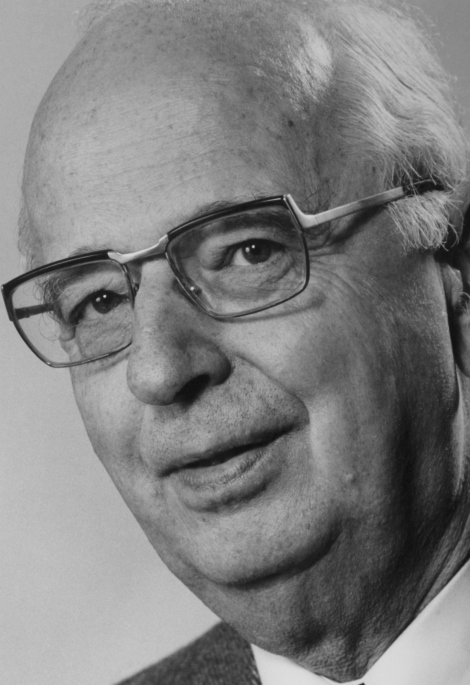
Born in 1920, he studied in Marburg, Leipzig and Gießen, specializing in the field of radiology. 1949 saw him appointed Head of Radiology at the University of Gießen‘s Outpatients‘ Department, and he continued his scientific career at the Medical Faculty in Marburg. After gaining his Habilitation postdoctoral lecturing qualification (1957) and being appointed Adjunct Professor (1963), he accepted an offer of a professorship at MHH (where he started on 1 April 1965) and headed up the Institute of Clinical Radiology at Hannover’s Oststadtkrankenhaus hospital.
Alongside his academic work, a major focus was on provision of in-service training and professional development for clinicians: he served for many years as Chair of the Academy for Medical Training and Education (AfÄF) at both regional and national level. Stender received multiple accolades for this contribution. He was also committed to quality assurance in radiology, which was reflected in the 1987 amendment to German legislation on safety in radiology. Professor Hans-Stephan Stender died in Marburg on 10 July 2007.
Born in Bad Langensalza in 1928, Heinz Hundeshagen gained his journeyman’s certificate in joinery before, in the autumn semester of 1949, commencing studies in mathematics and physics in Marburg, additionally reading medicine there from 1952/53 onwards.
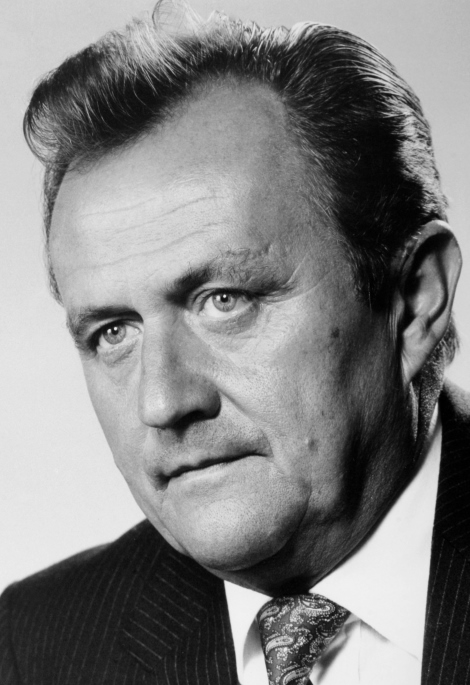
He received training in radiation biology and isotope research at the University of Marburg under Professor Graul, who also supervised the thesis (submitted in 1960) for his Habilitation postdoctoral lecturing qualification. He moved from Marburg to Hannover for the 1965 autumn semester, where he was placed in charge of creating a department for research into Nuclear Medicine and Special Biophysics at MHH. In 1968, Hundeshagen was appointed Full Professor of Nuclear Medicine, so that MHH played a pioneering role within this new line of medical research. Among the projects approved was a Collaborative Research Centre (SFB) project on ‘Diagnostic Nuclear Imaging using a Research Reactor’ at MHH, funded by the German Research Foundation (DRG).
In the autumn semester of 1971/72, Heinz Hundeshagen became MHH’s Vice-Chancellor for the first time, an office to which he was elected six times during his academic career there. For more than 14 years he directed and helped shape the Medical School as its Vice-Chancellor, a period associated chiefly with the development and consolidation of MHH as a higher-education establishment. Professor Heinz Hundeshagen gained emeritus status on 31 March 1997.
Helmut Fabel was elected MHH’s fifth Vice-Chancellor with effect from 1 April 1973.
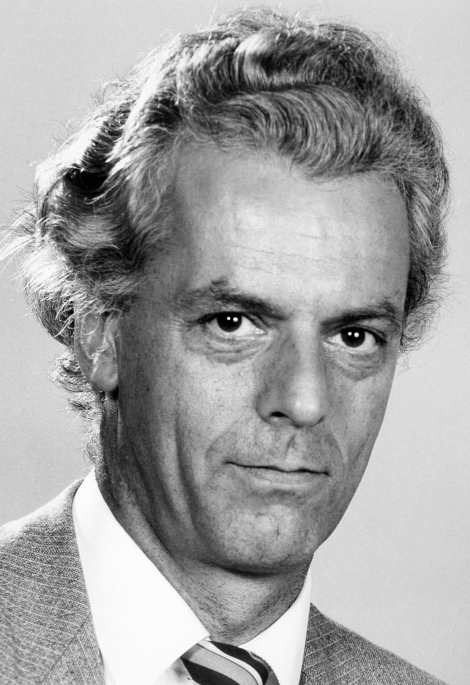
Born in Krofdorf near Wetzlar in 1934, he studied medicine in Marburg and, after gaining his doctorate, joined the team at Marburg’s Outpatients’ Department of Internal Medicine under Professor Fritz Hartmann. This close collaboration with Professor Hartmann resulted in Fabel’s relocating to MHH in 1965 in order to establish and head up the Pulmonary Function Laboratory at the Oststadtkrankenhaus hospital. Fabel gained his Habilitation postdoctoral lecturing qualification in internal medicine (specifically, the discipline of pulmonology) in 1967 and later, in 1971, took over the Department of Pulmonology Chair at the Oststadtkrankenhaus until gaining emeritus status in 2002.
In close collaboration with the transplant surgery team, both theoretical and clinical research was carried out that proved of fundamental importance for lung transplants and in treating chronic fibrosis of the lungs.
Professor Helmut Fabel advocated for the inclusion of this discipline at national level and was one of the co-founders of the German Lung Foundation (DLS) in 1994.
With effect from 1 April 1977, a female academic was elected Vice-Chancellor – for the first and (thus far) only time at MHH, and for the third time in Germany.
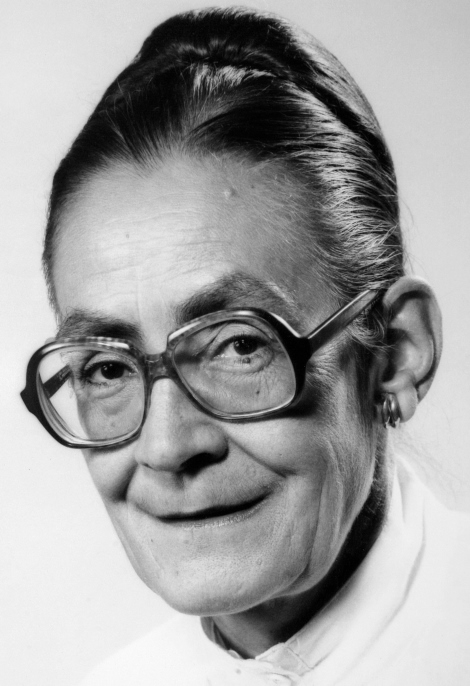
Born in Freiburg in 1924, she began her medical studies in 1943, these being interrupted by a period of service as a nurse at a military field hospital. After the war, she studied not only medicine but also chemistry, achieving her doctorate in Düsseldorf in 1950. Following spells in Mainz and then Kassel, she relocated to Marburg, specifically the Medical Outpatient Department. 1965 saw Ellen Schmidt come to Hannover when her husband Friedrich-Werner Schmidt accepted a professorial post in gastroenterology at MHH.
The main focus of their joint research was on exploring the enzyme specificity of certain organs, particularly the liver; this resulted in their being granted a lectureship in experimental hepatology in 1974. As a husband-and-wife research partnership, the Schmidts were thus among the pioneers of clinical enzyme research and of the development of models to determine enzyme levels in the blood serum. Having been awarded her Habilitation postdoctoral lecturing qualification at MHH in 1967, Ellen Schmidt was appointed Adjunct Professor in 1971. Starting in 1974, she headed up the Gastroenterology Department’s research laboratory. Professor Ellen Schmidt went into retirement on 31 March 1991 and died on 24 August 2012 at the age of 88.
Professor Klaus Alexander, Head of the Department of Angiology, was twice elected Vice-Chancellor of MHH by the Medical School’s Council – with effect from 1 April 1985 and again from 1 April 1987.
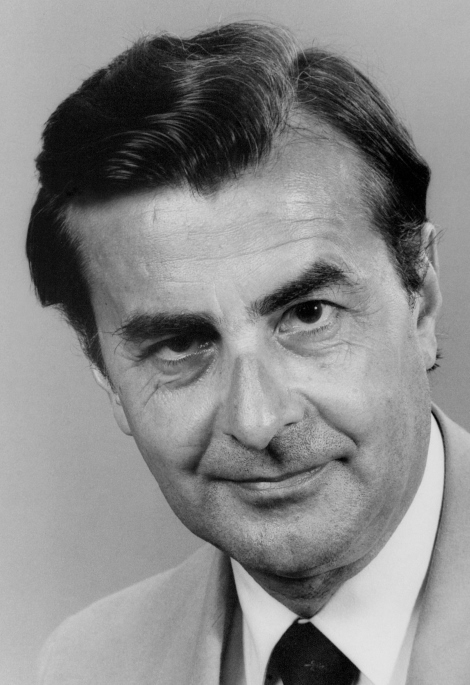
Born in Mannheim in 1932, after studying medicine in Freiburg, Munich and Heidelberg he initially specialized in pharmacology. His research on the pathophysiology of vascular diseases, and in particular diabetes, was conducted primarily at the Medical Outpatients’ Department in Marburg, to which he relocated in 1963, and where in 1968 he gained his Habilitation postdoctoral lecturing qualification in the field of internal medicine, specializing in angiology. In addition to his angiological research, another focus of his clinical work was on rheumatic diseases. In 1965 Prof. Alexander moved to the MHH. From 1975 until his retirement in 1997 he was Director of the Department of Angiology at the Centre for Internal Medicine.
He died on December 28, 2019 at the age of 87.
On 1 April 1993, the office of Vice-Chancellor was assumed by Reinhard Pabst, a professor of functional anatomy who was born in Posen in 1943. This was the first time a Vice-Chancellor had been elected who had embarked on his medical studies – in the spring semester of 1965 – at the recently established MHH, and who, in addition to his degree, had served as a student representative on the Senate.
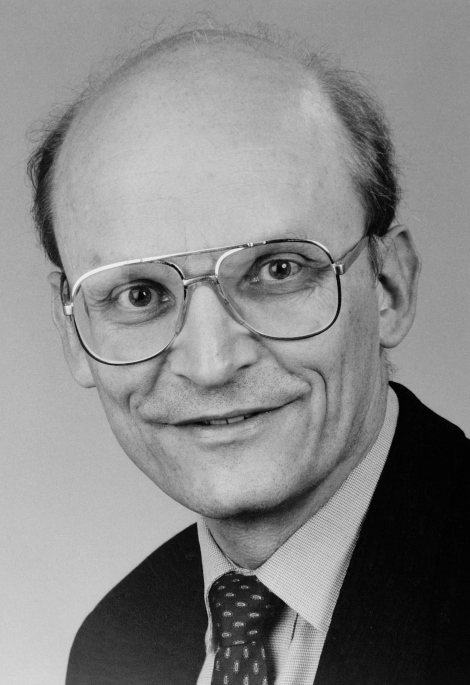
After spells studying in Glasgow and obtaining his doctorate at MHH, he relocated to the University of Ulm. He gained his Habilitation postdoctoral lecturing qualification there in 1976 and, in the same year, returned to MHH as senior research assistant (Oberassistent). He became Head of the Department of Topographic Anatomy and Biomechanics in the autumn semester of 1981; in 1992 (again in the autumn semester) he took on the post of departmental head in functional anatomy.
In his capacity as Deputy Vice-Chancellor for both teaching and research, he played a multifaceted role in the shaping of MHH. His new approaches to teaching drew nationwide attention. He consistently pursued the aim of close integration between theoretical and clinical medicine. In collaborative work between the various clinical and clinical/theoretical centres at MHH he contributed, for example, to several Collaborative Research Centres: SFB 587, ‘Immune Reactions of the Lung in Infection and Allergies’[...]; SFB 566, ‘Cytokine Receptors and Cytokine-Dependent Signal Paths as Therapeutic Target Structures’; and SFB 621, ‘Pathobiology of the Intestinal Mucosa’. Professor Reinhard Pabst retired on 31 March 2009.
Professor Karl-Martin Koch was elected Vice-Chancellor of MHH by the Medical School’s Council with effect from 1 April 1997.
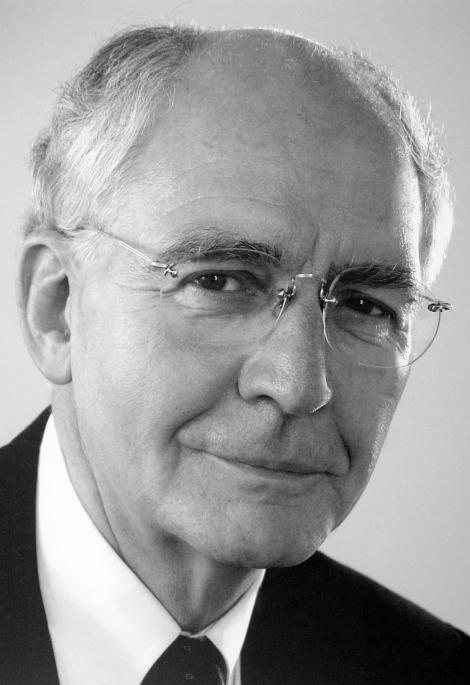
Born in Eschwege in the district of Werra-Meißner in 1934, he studied medicine in Göttingen, Würzburg and Frankfurt am Main. He obtained his specialization as a clinical researcher in the field of nephrology at two centres, the Max Planck Institute in Göttingen under Professor Ochwadt and at New York University Hospital under Professor Bank. Then, in 1968, he resumed teaching and research at the University of Frankfurt, where he specialized in disciplines including the pathogenesis of renal anaemia and renal insufficiency. In 1971 he gained his Habilitation postdoctoral lecturing qualification, being appointed professor one year thereafter. 1982 saw Koch take up the offer of a Chair in Nephrology at MHH. Between 1989 and 1993, he was also Medical Director at the School. He was a member of the ‘Structural Committee 2000’ formed to plan MHH’s future development. Professor Karl-Martin Koch entered retirement on 31 March 1999.
During MHH’s transitional phase as it departed from the ‘experimental clause’ (Sec. 90, 2 of the Lower Saxony Higher Education Act (NHG) and embraced the new NHG Act of 2002, Professor Horst von der Hardt assumed the office of Vice-Chancellor on 1 April 1999.
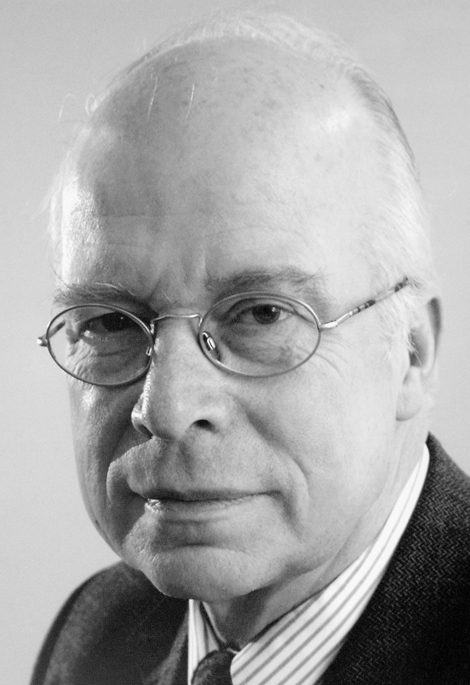
Horst von der Hardt was born in Greifswald in 1940. Having studied medicine in Freiburg, Heidelberg and Tübingen, he gained his doctorate at the University of Heidelberg in 1969. He embarked on his academic career in the same year, joining MHH as wissenschaftlicher Assistent (a postdoctoral research position with limited tenure) at the Pathological Institute under Professor Georgii. 1975 saw him obtain his Habilitation postdoctoral lecturing qualification in the discipline of paediatrics; one year later he was appointed Adjunct Professor.
From 1976, von der Hardt was a senior physician (Oberarzt) at MHH’s Department of Paediatrics – Paediatric Pulmonology and Neonatology, being appointed its Director in 1981. Under his leadership, a supra-regional Cystic Fibrosis Centre was created, which was awarded the Christiane Herzog Prize in February 2005.
Professor Horst von der Hardt was Deputy Vice-Chancellor for Research, Early-Career Scientists and Professional Development from 1993 to 1999, before embarking on a five-year term as Vice-Chancellor of MHH. He entered retirement on 31 March 2005.
Professor Dieter Bitter-Suermann was chosen by the Senate at the recommendation of a selection committee (with the involvement of the University Council), and recommended to the Ministry of Science and Culture for appointment on 1 April 2004.
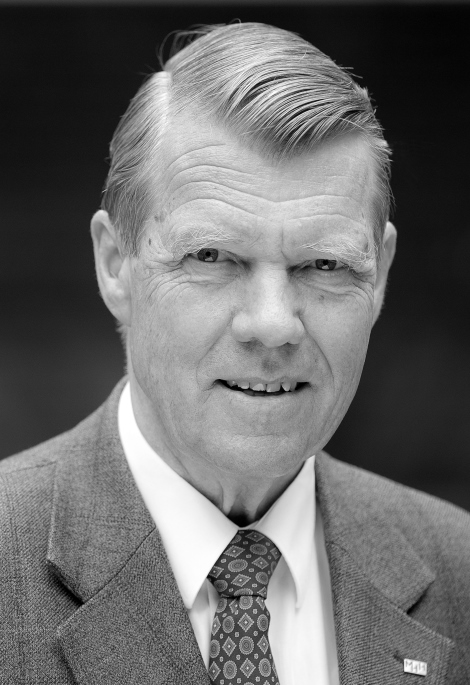
Born in Berlin in 1937, Bitter-Suermann studied medicine in Würzburg, Vienna and Göttingen, took his Staatsexamen at the University of Göttingen in 1965 and gained his doctorate there two years later. 1967 saw him commence his microbiological and other scientific training at the University of Mainz’s Institute of Medical Microbiology. He gained his Habilitation postdoctoral lecturing qualification in 1972 with a thesis on the complement system. In 1976 he became senior physician (Oberarzt) at the Microbiological Institute in Mainz. In 1987 he accepted the offer of a C4 professorship in medical microbiology at MHH.
Bitter-Suermann influenced MHH not only as Director of the Medical Microbiology Department but also as the School’s Medical Director between 1993 and 1997, and as spokesperson and member of various Collaborative Research Centres. March 2003 saw him temporarily enter retirement, but he remained involved in MHH as a member of the University Council until he was elected as its new President, taking up this post on 1 April 2004.
During Bitter-Suermann‘s time in office, MHH became the most research-oriented university medical establishment in Germany. Externally acquired funds spent on research increased during his tenure from EUR 45m in 2004 to EUR 92m in 2012. Further demonstrations of the Medical School’s excellence in performance during his term of office are the funding – not once but twice – of the REBIRTH Cluster of Excellence in the area of regenerative medicine, MHH’s participation in the Hearing4all Cluster of Excellence for auditory research, the Integrated Research and Treatment Center Transplantation (IFB-Tx), and its involvement in the German Centre for Infection Research (DZI) and in the German Centre for Lung Research (DZL). In teaching, a pilot study programme for human medicine called ‘Hannibal’ was successfully launched in 2005, and the introduction of four courses of study for healthcare professions approved: Nursing Care (Bachelor’s), Speech Therapy (Bachelor’s), Physiotherapy / Occupational Therapy (Master’s) [CR3] and Midwifery (Master’s).
From 2009 to 2012 he was president of the German Medical Faculty Association (MFT), whose profile – both politico-professionally and in terms of health policy – was raised considerably under his leadership. On 31 March 2019, Professor Dieter Bitter-Suermann entered retirement for a second time.
Professor Christopher Baum was selected by the Senate on the recommendation of a selection committee with the participation of the University Council and proposed to the Ministry of Science and Culture to be filled on April 1, 2013. He was the youngest president the university ever had when he took office.
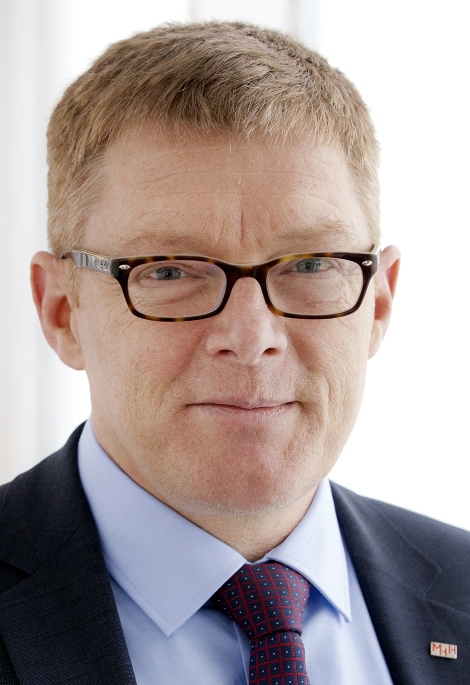
Born in Marburg / Lahn in 1962, Christopher Baum studied medicine in Essen, Freiburg and Hamburg from 1982 to 1989. He received his doctorate in 1991 at the University Medical Center Hamburg-Eppendorf (UKE), where he worked until 1993 as a research assistant. From 1993 to 1996 he worked at the Heinrich Pette Institute of the University of Hamburg in the Department of Cell and Viral Genetics. In 1999 he received his habilitation in the field of Molecular Medicine at the University of Hamburg and until 2000 was a research associate in the bone marrow transplantation of the UKE. In 2000, Professor Baum moved to Hanover at the MHH and until 2005 held the C3 Endowed Professorship for Stem Cell Biology in the Department of Hematology, Haemostaseology and Oncology. From July 2003 to 2009, he also served as Adjunct Associate Professor at the Department of Experimental Hematology, Cincinnati Children's Hospital Medical Center, Cincinnati, Ohio. From April 2006 to March 2013, he headed the MHH Institute for Experimental Hematology as a W3 professor and world-renowned researcher in cell and gene therapy in the blood-forming system. As a research dean, he headed the research commission of the MHH from 2007 to 2013 and was an advisory member of the Senate.
During his tenure, Professor Baum managed the economic consolidation of the university under difficult starting conditions together with the Senate, the University Council and the consistently high level of commitment of the employees. At the same time, MHH's leading position among German university hospitals in research, teaching and health care was maintained. Baum also paid special attention to the promotion of young scientists. He introduced the Voluntary Scientific Year as the new form of the Voluntary Social Year, the Clinician Scientist Program "Young Academy of MHH" and the TRAIN Academy for Translational Sciences. On his impetus, the redesign of the master planning of the campus in Hannover took place, and he was responsible for the overall coordination of MHH's Excellence Concepts.
On 1 January 2019, Professor Dr. Michael P. Manns (born 16 November 1951) was appointed President of MHH and headed the university until 31 December 2024.
After studying medicine at the universities of Vienna and Mainz, he continued his clinical and scientific training at the Free University of Berlin and the University of Mainz. In 1986, he was appointed professor of medicine at the University of Mainz. From 1987 to 1988, he worked as a research associate at the Scripps Clinic and Research Foundation in La Jolla, California.
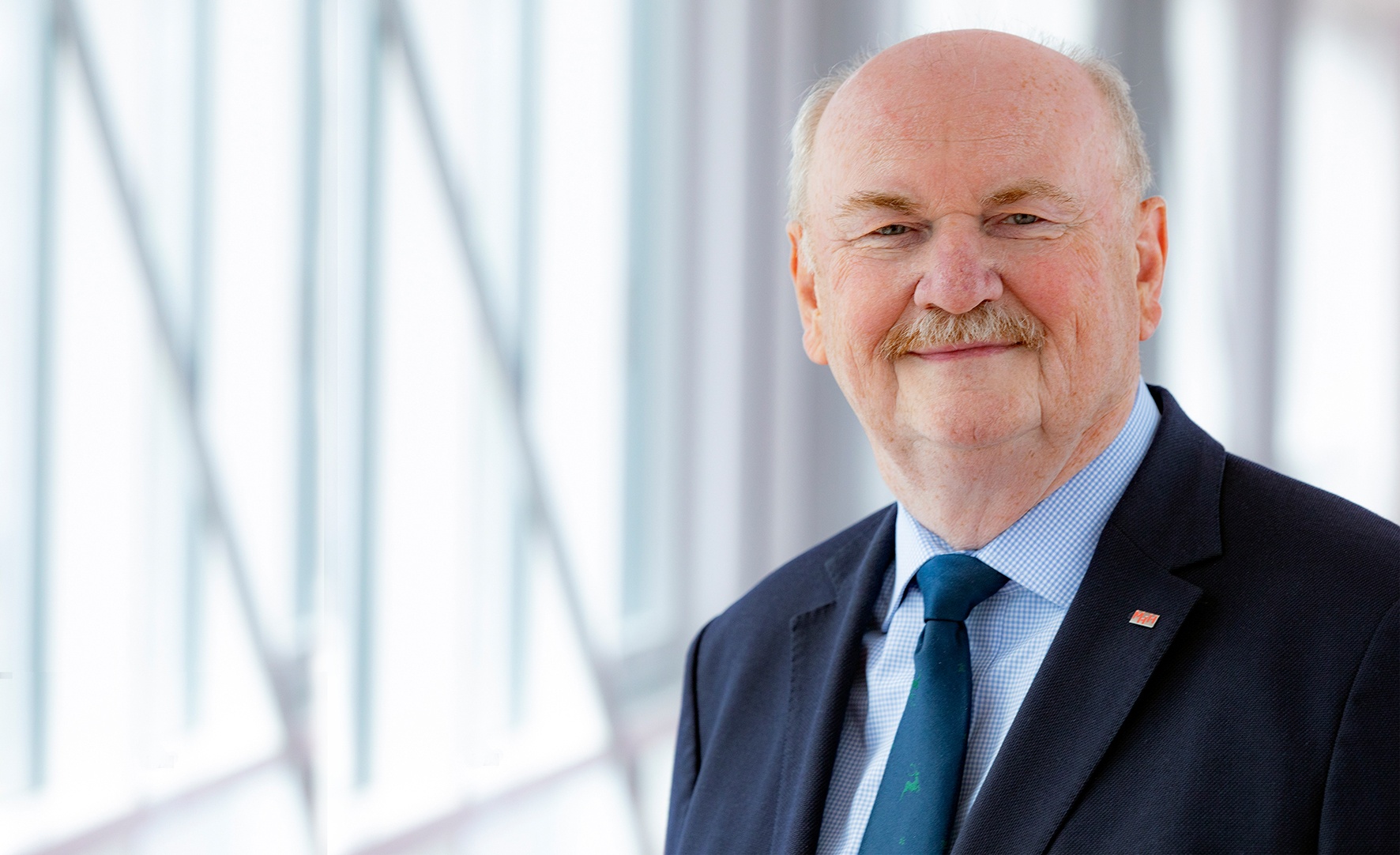
In 1991, Professor Manns took over the management of the Clinic for Gastroenterology, Hepatology and Endocrinology at MHH. In this role, he established the department as one of the leading institutions in this field. His research focuses on liver diseases such as viral hepatitis, autoimmune liver diseases and hepatocellular carcinoma. He has published over 1,000 articles in renowned journals and has received multiple awards for his scientific achievements.
During his term as MHH President, he promoted generational change in senior positions and advocated for the further development of the university. The COVID-19 pandemic posed a particular challenge, requiring major organisational and scientific adjustments. Under his leadership, MHH made a decisive contribution to the fight against the pandemic, for example by developing new test strategies, conducting clinical research on COVID-19 and organising the vaccination campaign. Despite these adversities, he succeeded in further developing MHH as one of Germany's leading medical universities. He also initiated important construction projects: the construction of the new MHH clinic was initiated during his term of office, with the aim of making the university's infrastructure fit for the future. Another milestone was the laying of the foundation stone for the ‘Center for Individualized Infection Medicine’ (CiiM), a joint project with the Helmholtz Centre for Infection Research (HZI) to advance personalised infection medicine.
Professor Manns is also involved in numerous professional societies and organisations. He was president of the German Society of Gastroenterology (DGVS), the German Association for the Study of the Liver (GASL) and the German Society of Internal Medicine (DGIM). At the European level, he was a member of the Scientific Committee and, from 2016 to 2017, president of United European Gastroenterology.
In 2022, Professor Manns received the United European Gastroenterology ‘Lifetime Achievement Award’ for his life's work and his extensive commitment to liver, stomach and intestinal research. In January 2025, he was awarded the Lower Saxony Medical Association's badge of honour, the highest distinction awarded by the medical profession in Lower Saxony.
Even after the end of his presidency, Professor Manns remains connected to MHH and continues to be involved in medical research and teaching.